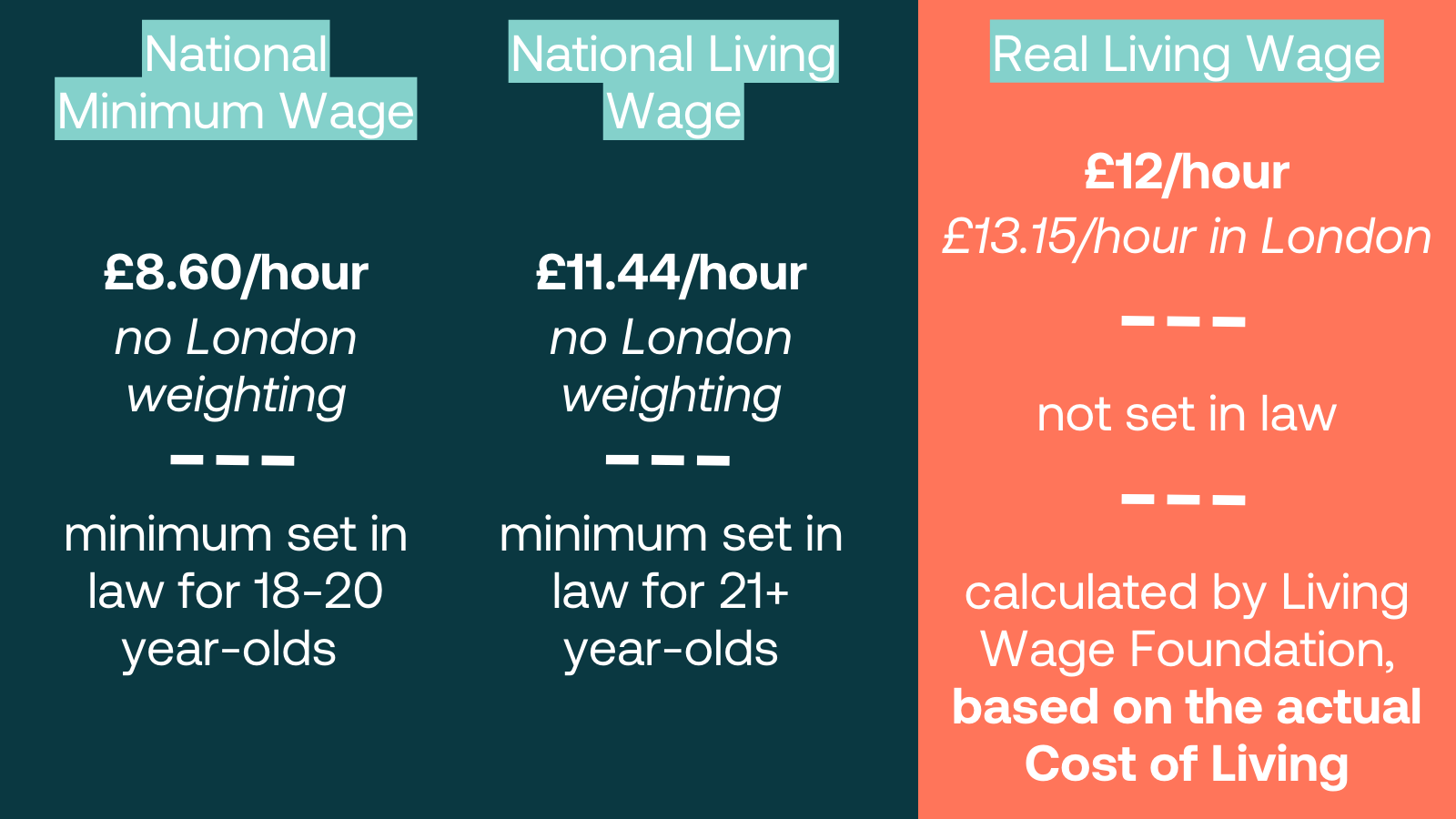AGMs are a vital tool for ShareAction and how we advocate for change. Face-to-face, we can press the boards of some of the world's biggest companies and urge them to improve. This year, as part of our Living Wage campaign and against the backdrop of a dire Cost of Living crisis, we’ve been challenging the directors of Britain’s biggest retailers on low pay.
For three of the country’s most beloved supermarkets - Tesco, M&S and Sainsbury’s, we asked the board two important questions: would they pay a wage to contracted workers (think cleaners and security guards) that truly meets the cost of living, addressing the unfair advantage that directly employed staff have enjoyed so far? And would they accredit as Living Wage Employers, giving all of their staff the stability and assurance that they so desperately need?
Unfortunately, company directors at all three supermarkets continued to ignore the hard work of their employees and rejected our calls to improve pay practices.
The retail sector’s low pay problem
The retail sector, as it stands, is reliant on poverty pay. It is an industry with enormous, low-paid workforces and one that has largely failed to follow the trend of other sectors in moving towards paying the real Living Wage.
More than half of the FTSE100 (a collection of Britain’s biggest companies) are accredited Living Wage Employers, an initiative from the Living Wage Foundation. These accredited employers guarantee the real Living Wage year-on-year: currently £13.15 per hour in London and £12 per hour in the rest of the UK. Accreditation is the most effective way to provide long-term financial security to workers.

The last two years have seen significant and lasting increases in the price of essential goods and services. Such increases are severely impacting living standards, with research showing that over the last year, 3.4 million UK households didn’t have enough money for food and 15% of working age adults are in a household with someone working and yet living in poverty.
As such, it is vital for supermarkets to guarantee a real Living Wage to all staff, both directly employed and contracted workers. It is essential for their workers’ livelihoods, for the health of their businesses, and for the wider well-being of society and the economy.
How supermarket AGMs become a Living Wage campaign tactic
A company’s AGM is the perfect opportunity to hold its board and decision-makers to account for this important issue. An AGM, or Annual General Meeting, is a key event where a company gathers its shareholders to review the company’s performance, discuss practices and vote on important issues. Attending these meetings provides us, the investors we work with, and our supporters with the unique platform to directly address company boards and executives. By purchasing shares in companies, we gain the legal right to attend these meetings and ask questions, which draw attention to pressing issues and pressure companies to act responsibly. Our presence at AGMs also helps us build relationships with decision-makers, often leading to further discussions and developments.
So what happened at each AGM?
In June, we made our way to Welwyn Garden City in Hertfordshire to attend Tesco’s AGM. ShareAction, with the help of one of our valued supporters, posed questions to the board on the topic of the real Living Wage for contracted staff. Our attendance received national media coverage as we drew attention to the CEO’s pay nearly doubling to £10 million, whilst cleaners don’t receive enough to live on. Unfortunately, the board continued to refuse to meet with us to discuss the issue further.
In July, we attended M&S’s and Sainsbury’s AGMs and posed similar questions. Our CEO, Catherine Howarth, submitted a video question for M&S’s hybrid AGM where she asked why, after nine years of engagement from ShareAction, M&S has still failed to listen to its consumers and shareholders and accredit as a Living Wage Employer.
At Sainsbury’s’ AGM, a ShareAction supporter and concerned Sainsbury’s investor recognised the improvements the supermarket had demonstrated over recent years but urged the board to continue demonstrating leadership in the sector and become a Living Wage Employer.
The boards of M&S and Sainsbury’s dismissed these appeals - but they did acknowledge the benefits of ShareAction’s engagement.
What's next?
Our questions at the AGMs of these supermarkets, three of the country’s most loved, largely went unheeded. This won’t stop us from going again next year and stepping up our engagement; the scale of the issue demands this. In the meantime, ShareAction has big plans for its Living Wage campaign. We have a few other AGMs of retailers that we intend to pose these important questions coming up, and we hope to continue building support for our movement against poverty pay.
If you want to get involved, follow us on LinkedIn, Twitter and Instagram, donate to our important work or become an AGM activist yourself!